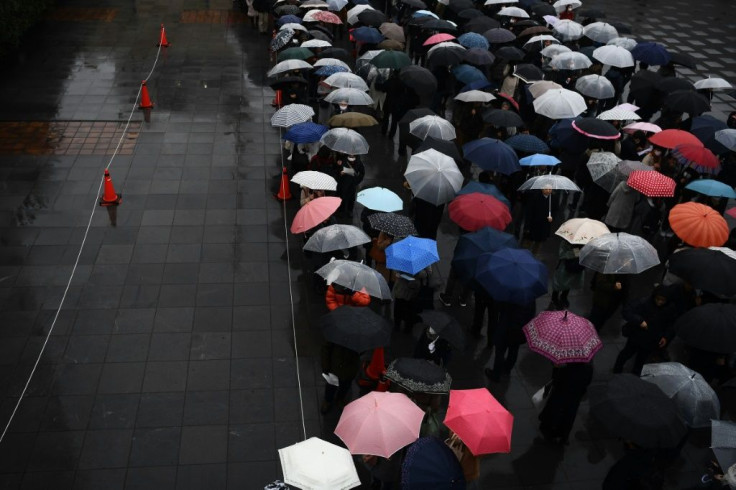Japan Man Faces Verdict In Murder Of 19 At Disabled Care Home
A Japanese court hands down its verdict Monday in the case of a man accused of murdering 19 disabled people at a care home in 2016, in one of the country's worst mass killings.
Satoshi Uematsu, a former employee at the facility, does not dispute his involvement in the grisly stabbing rampage that shocked Japan where violent crime is rare. He faces the death penalty if convicted.
His lawyers have entered a plea of not guilty, arguing the 30-year-old was suffering a "mental disorder" linked to his use of marijuana.
But prosecutors say Uematsu was capable of taking responsibility for the attack at the Tsukui Yamayuri-en centre in Sagamihara town outside Tokyo and should be executed for his crimes.
The rampage was "inhumane" and left "no room for leniency", prosecutors argued last month.

Uematsu's behaviour in court, including apparently trying to put something in his mouth, disrupted proceedings in the first hearing in January, with the judge calling a recess and then resuming without him.
He faces six charges including murder and has reportedly said he will not appeal whatever decision the court hands down.
But he has also defended himself, arguing his actions do not deserve the death penalty.
Uematsu has reportedly said he wanted to eradicate all disabled people in the horrifying attack that also left 26 people wounded.
He turned himself in to police after the assault, carrying bloodied knives.
It later emerged he had left his job at the home just months earlier and had been forcibly hospitalised after telling colleagues he intended to kill disabled people at the centre.

Uematsu had been discharged after 12 days when a doctor decided he was not a threat. He had also written a letter outlining plans to attack the home, claiming "disabled people only create unhappiness".
Among the few victims to be identified publicly was a 19-year-old woman, Miho, whose mother had said at the court that Uematsu "didn't need a future".
"I hate you so much. I want to rip you apart. Even the most extreme penalty is light for you. I will never forgive you," her mother said, according to public broadcaster NHK.
"Please bring back my most precious daughter... You're still alive. It's not fair. It's wrong."
"I demand capital punishment," she added.
Uematsu has shown no remorse for the attack, telling Japan's Mainichi Shimbun daily that people with mental disabilities "have no heart", and for them "there's no point in living".
"I had to do it for the sake of society," he said.
Uematsu's beliefs shocked Japan, with experts and activists raising questions about whether others might hold similar views.
Japan has been making efforts to increase accessibility -- particularly in Tokyo ahead of this year's Paralympic Games -- and activists hailed last year's election of two disabled lawmakers.
But some critics feel the country still falls short of fully integrating people with disabilities.
© Copyright AFP 2024. All rights reserved.











